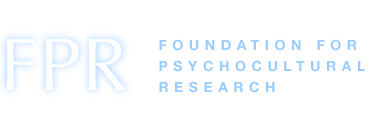The Foundation for Psychocultural Research funded the Inaugural Workshop of the Social-Cultural Computational Psychiatry and Neuroscience Network (SCCPNN), which took place from November 4–8, 2019, in Montreal.
The SCCPNN is a new network for multidisciplinary research in social-cultural computational psychiatry, a novel discipline that applies computational tools to the study of neural processes and cognition in health and illness. This project builds on recent advances in the study of multiscale system dynamics in the neurosciences, social and behavioral sciences, and computational modeling to advance the emerging discipline of computational psychiatry, with a focus on social and cultural aspects of brain function.
Computational psychiatry is a novel discipline that applies computational tools to the study of the mechanisms of psychiatric disorders and to the delivery of mental health care. To date, this has focused on brain-based models of disorder and integrating neuroscience data into clinical assessment. The SCCPNN aims to extend this work to integrate computational psychiatry with the study of sociocultural contexts and processes.
Maxwell Ramstead, Douglas Utting Fellow at Jewish General Hospital and McGill University, founded the SCCPNN in 2018. The network brings together researchers and clinicians involved in cutting-edge research in neuroscience, anthropology, philosophy, psychology, and psychiatry. The inaugural workshop was particularly timely, as these techniques are just now being developed, and there is no standard framework or pipeline for combining these techniques in multidisciplinary collaborative research.
SCCPNN Introduction and Multiscale Team-Based Research
9:00-9:30
Introduction and institutional overview Laurence Kirmayer, McGill University and Jewish General Hospital
9:30-10:00
Toward a social-cultural computational psychiatry: Challenges and prospects Maxwell J. D. Ramstead, McGill University and Jewish General Hospital
10:00-10:30 Participant introductions
10:30-11:00 Break
11:00-12:00
‘I interact therefore I am’: Two person psychophysiology and multilevel analysis of intersubjectivity to study interpersonal attunement in social interactions
Dimitris Bolis, Max Plank Institute of Psychiatry
12:00-13:00 Lunch
13:00-14:00
H4—Hyperscanning: History, Hypes, & Hopes Guillaume Dumas, Institut Pasteur
14:00-15:00
Neural coupling during cooperation as a biomarker for human social contact
Edda Bilek, University College London and Wellcome Centre for Human Neuroimaging
15:00-15:30 Break
15:30-16:30
Dynamic causal modelling: Tutorial and first results for multi-brain data
Edda Bilek, University College London and Wellcome Centre for Human Neuroimaging
16:30-17:30
Emotion-cognition interactions as deep active inference Ryan Smith, Laureate Institute for Brain Research



